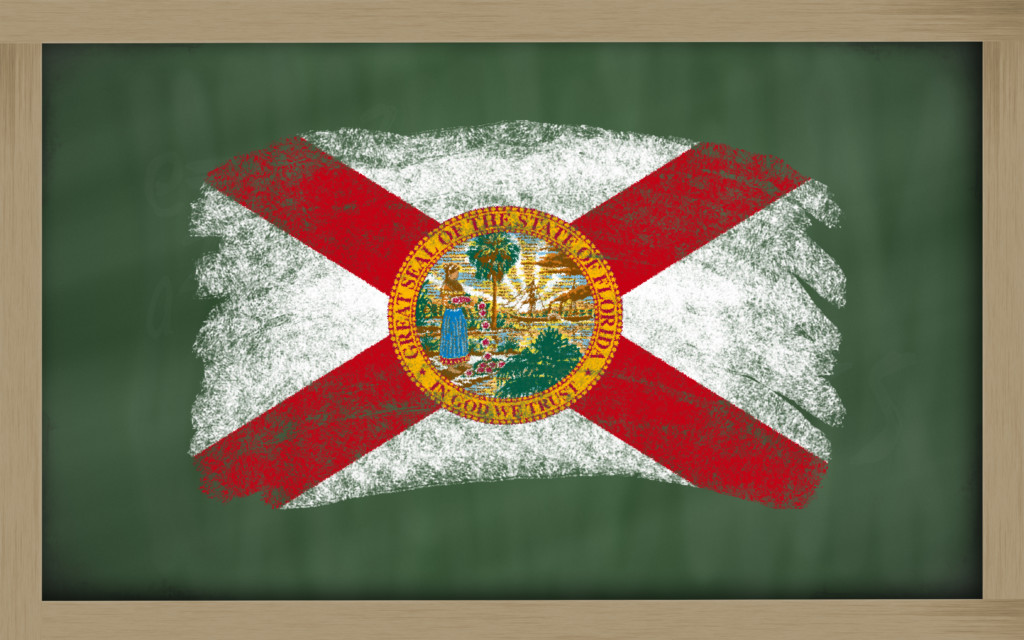
All across Florida, voters chose to raise their own taxes to pump more money into their local schools. Some districts will share that money with charters, some won't, and questions still remain yet in others.
As voters in eight Florida counties Tuesday approved extra taxes for public schools, charter school officials aren’t sure whether any of that money will be shared with charters.
Four of the counties – Alachua, Lee, Miami-Dade and Palm Beach – made formal decisions prior to the election not to share the revenue from tax increases with charter schools. Three others – Charlotte, Hillsborough and Polk – say they intend to share some portions. The eighth county, Martin, could not be reached for comment.
Charter officials say they are troubled by the decisions because they believe charters, as public schools, should also be allowed to receive some of the funding. They also worry that proposed salary increases at traditional public schools will make it harder for them to compete for the best teachers.
“It is hard to believe that charter schools have been a part of Florida’s K-12 public education system for over 20 years,” said Lynn Norman-Teck, executive director of the Florida Charter School Alliance. “Yet, we are not seen as a partner by some districts but as the other. It is clear when you look at the tax referendum language, they don’t see us as partners even though we are here working hand and hand with them to raise the bar in Florida, especially among minority students.”
In Alachua, Polk, Hillsborough, Martin, and Lee counties, funding from the tax increase will be allocated for school capital needs such as renovation projects. In Charlotte, school officials plan to use the funding to recruit and retain teachers.
Palm Beach School Board members unanimously voted in July to not share any revenue with charters from the property tax referendum, which is expected to generate $200 million a year for traditional public schools for school security measures and to pay for teacher salary increases.
The property tax referendum includes $50 million for 650 fine arts teachers and $100 million for teacher raises.
“This will impact our ability to retain high-quality teachers because of the salary issue,” said Linda Terranova, principal and founder of Western Academy Charter School in Palm Beach, serving 520 students.
Terranova added she feels discriminated against.
“I think it is shameful, especially when they are saying the money is being used for school security and fine arts teachers,” she said.
Similarly, Miami-Dade public school officials have not discussed sharing with charter schools the $232 million that voters approved on Tuesday, according to the Miami Herald. The funding will pay for teacher salary increases and school security measures.
Jaquelyn Calzadilla, spokesperson for Miami-Dade Public Schools, said the money collected from the tax referendum will free up additional funding from the Safe Schools allocation to potentially allocate to charter schools. The School Board will have to approve that funding. Last year, she said $2 million was allocated to charter schools for security.
In Alachua, the increased tax will include $22 million a year for repairs, renovations and site acquisition at 40 schools in the county. Asked why Alachua would not share its revenue with charter schools, Jackie Johnson, director of communications, said that “the ballot language was written in such a way that would focus on district-owned schools.”
In Alachua, there are 15 charter schools.
Officials in Charlotte, Hillsborough and Polk say they are open to sharing the tax revenue with charter schools.
Charlotte County is sharing revenue with its three charter schools based on student enrollment, according to Michael Riley, school and community liaison. The estimated revenue, at more than $17 million, is going to be used to recruit and retain teachers, add a half hour to the school, and to enhance arts and athletics programs.
In Polk County, funding from the half-cent sales tax, expected to raise $675 million, would be shared with conversion charters, according to Kyle Kennedy, spokesman with Polk County schools. The revenue would be used for school construction, facilities and maintenance projects in the district.
And in Hillsborough County, the $1.3 billion collected over 10 years for capital needs, is earmarked for 1,785 projects at traditional public schools, according to Tanya Arja, media outreach for Hillsborough Public Schools. Some of those projects include replacing aging roofs, air conditioners and adding classroom technology.
Even so, Arja said if a charter school, which owns its own building, asks for funding, those specific schools would be considered if those officials go before the district’s Citizen Oversight Committee. The project also must be for deferred maintenance.